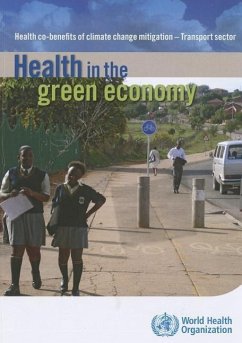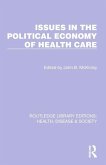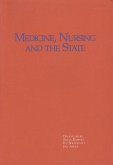Cycling, walking and rapid transit systems are associated with a wide range of health benefits that need to be reflected more systematically in transport and development policies. Health benefits may include: reduced risk of heart disease, some cancers, type 2 diabetes, and some obesity-related risks from more physical activity; reduced health risks from urban air pollution; reduced traffic injury risks and less noise stress. Rapid transit, walking and cycling systems also improve access to vital jobs, services and opportunities and ease the mobility of vulnerable groups, such as children, people with disabilities, and older adults, enhancing health equity. This report, part of the Health in the Green Economy series, considers evidence regarding health co-benefits, and risks, of climate change mitigation strategies for transport, as reviewed by the Intergovernmental Panel on Climate Change.
Bitte wählen Sie Ihr Anliegen aus.
Rechnungen
Retourenschein anfordern
Bestellstatus
Storno



